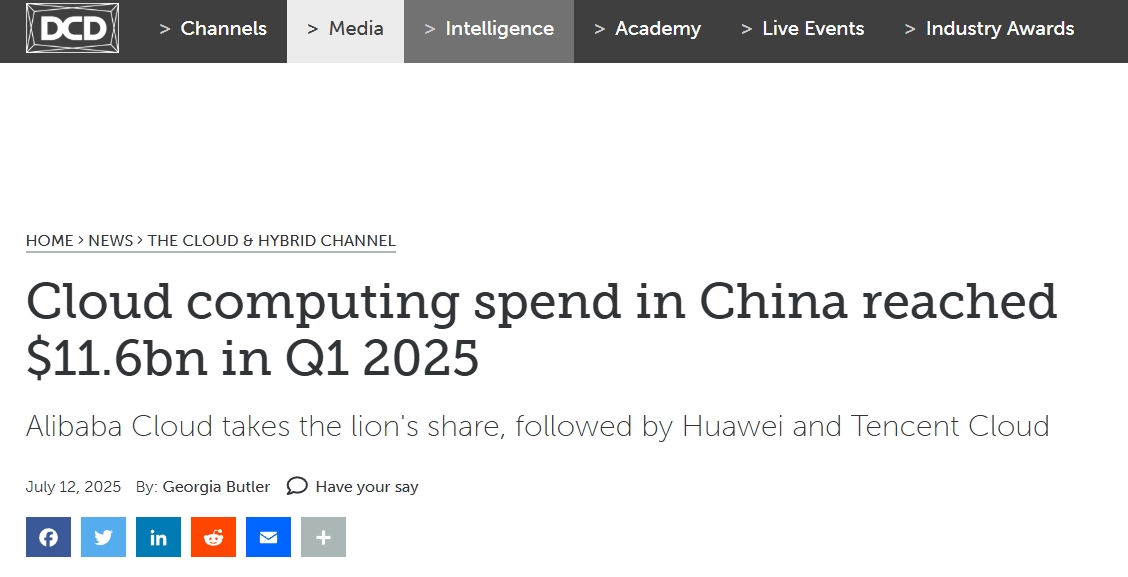Alibaba Cloud takes the lion's share, followed by Huawei and Tencent Cloud.
Cloud computing spend in Mainland China reached $11.6 billion in the first quarter of 2025, according to Canalys research.
This represents a year-on-year increase of 16 percent, with Canalys identifying AI-related demand as a primary driver of increased cloud adoption.
Of that $11.6bn, Alibaba Cloud held a 33 percent market share, followed by Huawei Cloud at 18 percent, and Tencent Cloud at 10 percent.
“AI is accelerating cloud adoption across the board. On one hand, organizations that previously relied on on-premises data centers are now migrating to the cloud to support AI workloads,” said Rachel Brindley, senior director at Canalys (now part of Omdia).
“On the other hand, enterprises with existing cloud infrastructure are increasingly integrating AI into their internal data and business processes, fueling sustained demand for GPUs, IaaS services, and foundation model capabilities.”
Alibaba Cloud grew 15 percent year-over-year in China, with AI-related workloads recording triple-digit growth for seven consecutive quarters. The company has, off the back of this demand, committed to significant investment in expanding its platform beyond Mainland China.
The company has said it will spend $52.7bn on developing a "unified global cloud network" and has in recent months launched new data centers in Malaysia, a second data center in South Korea, a new region in Mexico, and a second data center in Thailand.
Huawei Cloud, meanwhile, grew 18 percent year on year. The company also manufactures its own AI chips and unveiled its Ascend 920 AI chip earlier this year, and started shipping its 910C chip to Chinese customers in May.
Tencent Cloud, with a 10 percent market share, has also expanded its presence beyond Mainland China in Japan this year with the launch of a new cloud region, its third availability zone in the country, aimed at boosting cloud adoption across the Asia-Pacific region.
While AI is driving demand, the US remains committed to limiting China's access to advanced AI chips. Earlier this week, the Trump administration was said to be looking to restrict shipments of chips to Malaysia and Thailand to help prevent advanced semiconductors from being smuggled into China.
Bloomberg analysis recently reported that Chinese companies were seeking to get around 115,000 Nvidia H100s and H200s - chips that are restricted from being imported into China - with plans to house them in data centers currently under construction in Xinjiang.
The country has been developing chips domestically to progress its AI capabilities, but the Huawei CEO said earlier this year that their chips remain one generation behind those made by US counterparts.








